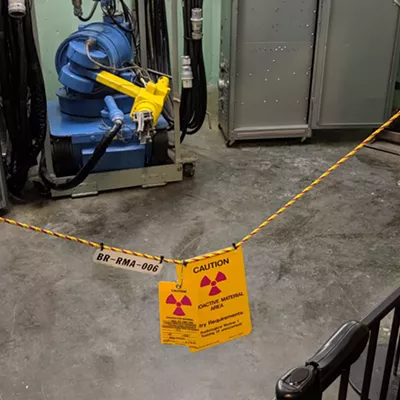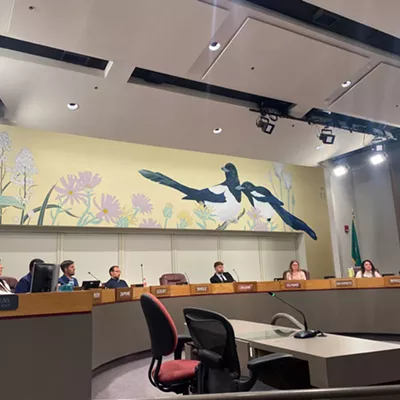There's a fresh face on Spokane City Council.
On Monday, council members voted to appoint Lili Navarrete to fill a vacant seat representing south Spokane's District 2. She'll serve until the next election in November 2025.
Navarrete, who works as a community development officer with the state Commission on Hispanic Affairs, will make history as Spokane's first Latina and first immigrant to serve on the council. She was born in Mexico City and moved here with her family in 1988.
A letter of support signed by over 100 community members earlier this month described Navarrete as a "prominent and active community leader."
The seat was previously held by Betsy Wilkerson before she won the race for City Council president in November. Navarrete was one of 17 people who applied for the job, which was open to anyone who lives in the district. Council members chose five finalists and interviewed them last week.
"I've always known her to be a very hard worker and a very thoughtful worker," says Council member Paul Dillon, who previously worked with Navarrete at the local Planned Parenthood.
The almost two-year appointment is a pretty big deal. But not everyone is happy about not having a say in who their next City Council member will be.
Earlier this month, James Bergdahl, a District 2 resident, emailed council members to suggest that district residents be given a chance to vote on their new representative during a special election already scheduled for Feb. 13, when citizens will vote on school and library levies and a redistricting ballot measure.
"This alternative is a much more democratic option," Bergdahl wrote, adding that the current plan will only exacerbate the City Council's political imbalance.
Bergdahl says he never got a response.
Navarrete's past political activity and support from progressive organizations like Fuse Washington indicates that she will likely join the City Council's left-leaning majority on most votes — giving the council a veto-proof, five-person progressive supermajority.
Wilkerson says a special election to fill the vacant seat isn't possible because the appointment process is required by city law.
"We can only do what we can do within the structure we have to work with," Wilkerson says.
Wilkerson herself first joined the council as an appointee to fill a vacancy in January 2020. Almost two years later, Wilkerson ran for office and retained her seat.
Michael Cathcart, a member of the council's two-person conservative-leaning minority, says he would support changing the law in the future to allow vacancies to be filled by special elections.
"I think it's a great disservice to the community that a small number of people get to essentially determine the future of a district like that," Cathcart says.
Even if changing the law isn't immediately possible, Cathcart still thinks the appointment process should have been more thorough and open to the public. He says a debate or town hall would have given the public — and council members themselves — a chance to better understand the candidates' stances on issues.
The Seattle City Council is also in the process of filling a vacant seat. Last Thursday evening, the city held a community forum where audience members spent two hours asking the finalists questions. Afterward, the public voiced support for their top picks through an online poll.
That same day, members of the Spokane City Council used their regular 11 am study session to interview the five finalists.
Each council member was allowed to choose one question to ask the five finalists. Cathcart, frustrated by the limit, asked a question that was longer than everyone else's combined, and actually contained three separate questions.
After the interviews, council members went into a private meeting to discuss the finalists. Cathcart didn't attend. He says he knows that a number of the applicants are close friends with other council members, and that he felt uncomfortable discussing the applicants in that setting.
"There's a lot of folks who are part of the same cliques," Cathcart says. "It should be a much more public process, it shouldn't be decided behind closed doors."
Wilkerson defended the process, and notes that many community members did provide input by sending letters of support for various applicants. Her advice for people frustrated about the process?
"If you don't like it, you should have put your name in for the open seat to get on the inside to help change it," Wilkerson says. "That's how I feel the democracy process kind of works." ♦



























